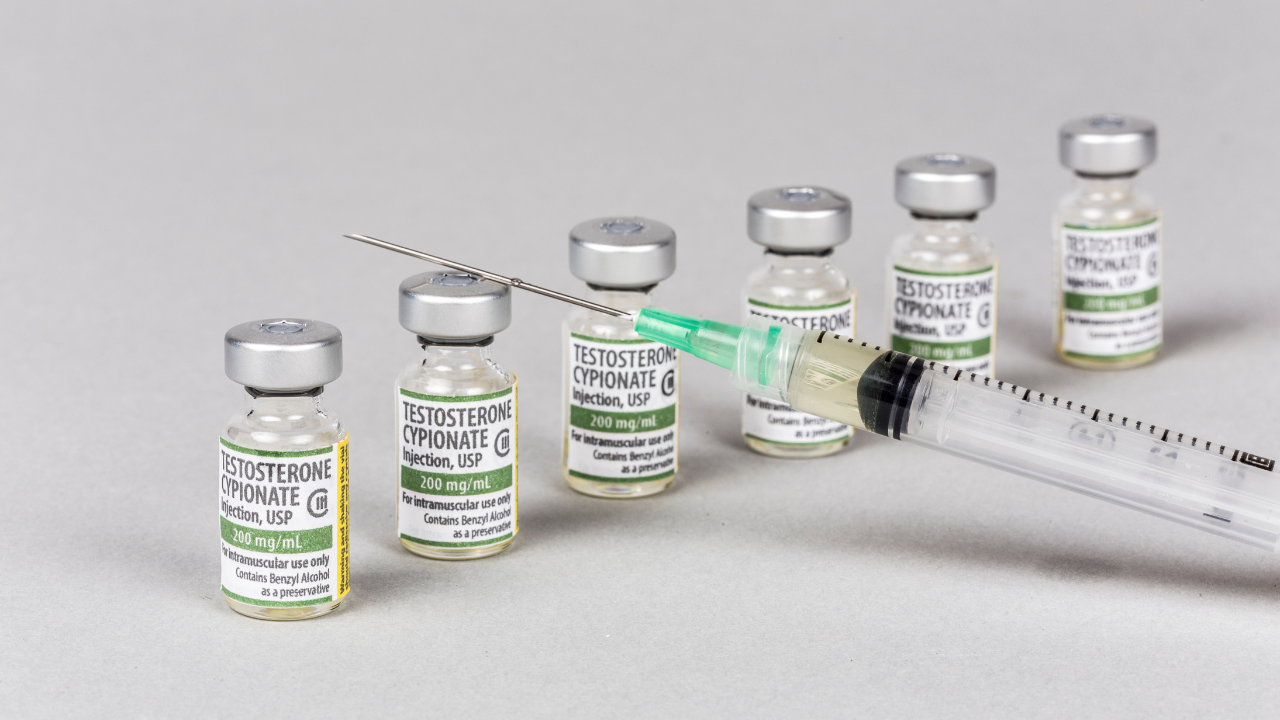We all call it Vitamin D, and I will continue to call it that here. But note that it’s so much more important than a regular vitamin. In fact, its been upgraded from vitamin status.
Vitamin D is actually now considered a pro-hormone rather than a vitamin as it is a precursor to all of the steroid hormones.
Vitamin D plays a crucial role in regulating the production of hormones in the body, including testosterone. A lack of Vitamin D can result in decreased testosterone levels, which can lead to various health problems such as decreased muscle mass, decreased bone density, and decreased libido.
Additionally, low testosterone levels can lead to decreased energy levels, depression, and impaired cognitive function. Some studies have also suggested that low Vitamin D levels may be associated with an increased risk of erectile dysfunction.
What is Vitamin D?
Vitamin D is a micronutrient that is needed for optimal health throughout your whole life. It’s something you need daily and forever.
It is a fat-soluble vitamin, meaning that it dissolves in fat/oil and can be stored in the body for long periods of time. There are two main forms: D2 and D3; D3 being more effective.
Vitamin D is also unique, because it is both a nutrient we eat, and a hormone that our body makes from exposure to sunlight, which is why it is often named the ‘sunshine’ vitamin.

While vitamin D affects various cells related to bone health – like telling the cells in the gut to absorb calcium and phosphorus – scientists have now generated a strong body of evidence supporting vitamin D as an indispensable hormone, required for regulation of many physiologic functions.
Research shows that vitamin D receptors are present in nearly every tissue and cell in the body, and adequate vitamin D is essential for optimal function of these tissues and cells to carry out important roles, including: reduction of inflammation, modulation of cell growth, immune function and glucose metabolism.
Simply put: Sufficient levels of vitamin D are essential for disease prevention, longevity, hormonal functionality, and optimizing overall human health.
How Testosterone Is Affected
Testosterone and Estrogen play significant roles for our overall health. For now, however, we’re going to focus on the testosterone.
In males, testosterone regulates sex drive (libido), erectile function, bone mass, fat distribution, muscle mass, and strength. Testosterone also polices the production of red blood cells and plays a large part in the creation of sperm through follicle-stimulating hormone (FSH).
In females, testosterone is essential for bone strength, the promotion of lean muscle mass and lastly strength. Testosterone in females adds to a women’s overall health, welfare, and energy levels.

When test levels get too low, major problems occur, including:
• Low libido (decreased sex drive)
• Decreased sexual function
• Decreased muscle mass and strength
• Difficulty concentrating
• Brain fog
• Higher amount of aches and pains
• Wrinkled and old skin
• Thinning hair/skin
• Hot flashes
• Inability to go to the bathroom
• Depression
• Higher levels of worry, anxiety, and fear
• Lack of drive (feeling unmotivated)
• Low self-esteem /low self-confidence
• Inability to make quick decisions
• Tiredness
• Weight gain (especially in the mid-section/accumulating visceral fat)
Now, there are a variety of factors that could cause low testosterone levels in both men and women. This isn’t to say Vitamin D alone can fix your levels if there are other variables (nutrition, stress/cortisol levels, lack of exercise, etc.) at play.
However, Vitamin D is such a low cost, easy lever to push, that it should be one of the first variables to work on if you suspect (or labs confirm) that your testosterone levels are low.
How To Get Proper Dosage
The major source of vitamin D is direct sunlight exposure. Unveiling bare arms and legs for 5 to 30 minutes between 10:00 AM and 3:00 PM is often adequate to meet vitamin D requirements. But this can vary depending on skin pigmentation and other factors.
Vitamin D obtained from summer sunlight can be stored in our bodies for a long period, however many people cannot store enough to see them through the winter months. Occupations which require long periods in an office and out of sunlight can also have an affect on your storage.
Variables such as age can also affect the amount of vitamin D converted in the skin. The cholesterol precursor in the skin (7-dehydrocholesterol) for vitamin D2 and vitamin D3, decreases as we age. In fact, it decreases at a rate of 50% between the ages of 20-80. This inhibits the amount of vitamin D3 older people can make.
If you’re getting a blood panel, normal or healthy in range values for vitamin D are 20 to 50 ng/mL with the optimal range being 50 to 80 ng/mL. Serum vitamin D or 25-hydroxyvitamin D levels can be reported either as nanograms per milliliter (ng/ml) or as nanomoles per liter (nmol/L).
Thankfully, you don’t have to rely solely on the sun. Vitamin D dietary supplements are safe and inexpensive, and are becoming widely available. But ideally exploring whole-foods like oily fish and mushrooms can deliver a good source of vitamin D.
5 Best Foods For Vitamin D That Should Be On Your Grocery List

The Upshot
Get outside as often as you can. Even sitting in your garden for 10-15 minutes in the mid-day sun will help. If you work in an office, take your lunch break outside.
Starting a new outdoor hobby can also help you spend time in the sun, like running, bike riding, surfing, or simply walking daily. These are all great ways to get your daily dose of vitamin D, get your steps in, and increase your overall happiness.
Remember: it’s not just a simple vitamin. It’s a prohormone, and it’s essential to your fat loss, muscle building, immunity, and overall health.

